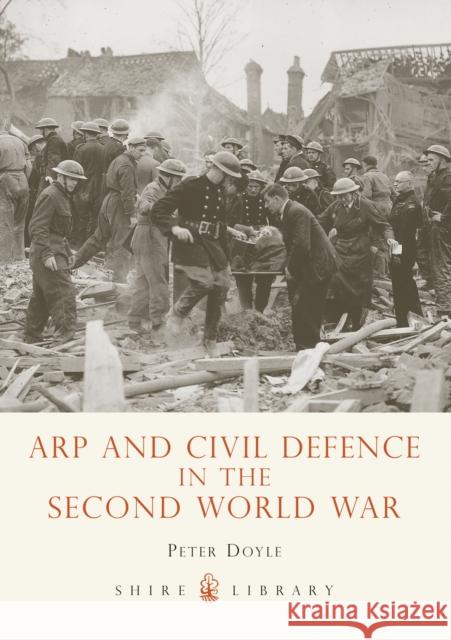ARP and Civil Defence in the Second World War » książka
ARP and Civil Defence in the Second World War
ISBN-13: 9780747807650 / Angielski / Miękka / 2010 / 64 str.
In 1938, Britain prepared for war, and to spread the word about what should be done in the event of attack, and to distribute the gas masks that would become universal, a body of men and women were called to public service - the Air Raid Precautions, or 'ARP'. Armed initially with only a badge of appointment, they became the object of public scorn. From the declaration through to early 1940, the volunteer services honed their skills in the face of public criticism. The ARP services - now a well-oiled machine with, among other specialists, wardens, rescue workers, first aiders and messengers - waited under the blackout.In 1940 came the 'Blitz' - and the laughing stopped. The ARP were in the frontline, assisting people to the shelters, reporting on the bombing and rescuing people from their wrecked homes. The Women's Voluntary Service was also vital at this time, providing food, shelter and sustenance to those made homeless.
Alongside the ARP were the men and women of the Auxiliary Fire Service (AFS), working with the county fire services, and to coordinate and organise the public, the Police were put on a war footing, with an increase in the volunteer Special Constabulary and War Reserves. In the thick of things, the fire services and AFS battled the fires that raged through British cities throughout the War. As the war progressed, so did the volunteer 'army' of Civil Defence. It became sophisticated, and Britons became familiar with living in the front line. The fire services were nationalized to create the National Fire Service (NFS), and in 1941 The Fire Guard was established. The ARP became truly a 'home army' of non-combatants - the Civil Defence, and this book is its story.











